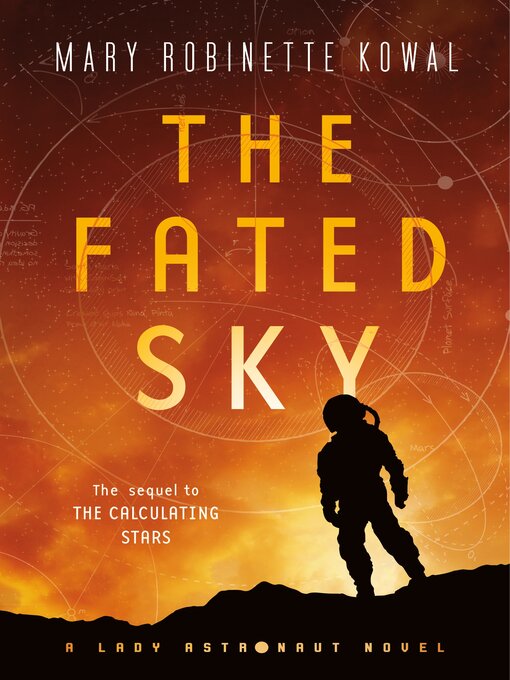Mary Robinette Kowal continues the grand sweep of alternate history begun in The Calculating Stars, The Fated Sky looks forward to 1961, when mankind is well-established on the moon and looking forward to its next step: journeying to, and eventually colonizing, Mars.
The Verge—Best SFF Books for August 2018
io9 —Best SFF Books for August 2018
Unbound Worlds —Best SFF Books for August 2018
Tor.com —Best SFF Books for August 2018
Kirkus Online —Best SFF Books for August 2018
Nerdmuch —Best SFF Books for August 2018
Of course the noted Lady Astronaut Elma York would like to go, but there's a lot riding on whoever the International Aerospace Coalition decides to send on this historic—but potentially very dangerous—mission? Could Elma really leave behind her husband and the chance to start a family to spend several years traveling to Mars? And with the Civil Rights movement taking hold all over Earth, will the astronaut pool ever be allowed to catch up, and will these brave men and women of all races be treated equitably when they get there? This gripping look at the real conflicts behind a fantastical space race will put a new spin on our visions of what might have been.
At the Publisher's request, this title is being sold without Digital Rights Management Software (DRM) applied.
- New eBook additions
- Available now
- New kids additions
- New teen additions
- Try something different
- See all ebooks collections
- Full Cast Audiobooks
- Love Stories to Listen To
- Listen While You Run - Audiobooks for Workouts
- New audiobook additions
- Available now
- New kids additions
- New teen additions
- Try something different
- Most popular
- 2024 Youth Media Awards
- See all audiobooks collections
- News & Politics
- Celebrity
- Home & Garden
- Health & Fitness
- Tech & Gaming
- Fashion
- Family & Parenting
- Travel & Outdoor
- Sports
- Business & Finance
- Photography
- See all magazines collections




